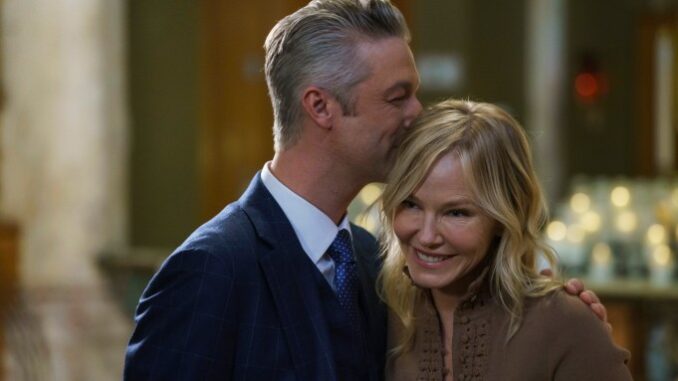
The fluorescent hum of the precinct, the echoing thunk-thunk of closing cell doors, the grim, determined faces of detectives – these are the indelible marks of Law & Order: SVU. But amidst this familiar tapestry, a question lingers, whispered among the fandom like a ghost in the squad room: Does Amanda Rollins come back to SVU next season? It’s a question that tugs at the heartstrings of loyalty, the logic of narrative, and the ever-present yearning for beloved characters to find their way home, even when they’ve seemingly found their peace.
The case for Rollins’ return is built on the very foundation of her departure: an exit carefully crafted to leave the door not just ajar, but wide open. We saw her transition from a seasoned, sometimes volatile, detective to a newly minted professor, then an ADA-in-training, all while solidifying her bond with Sonny Carisi. This wasn't a sudden, tragic death or a dramatic, career-ending scandal. It was a growth arc, a character’s evolution, culminating in a seemingly perfect domestic and professional tableau. But for SVU, "perfect" is often a prelude to "complicated." Imagine Carisi, neck-deep in a particularly thorny case, needing a legal mind that understands the nuances of trauma and the dark underbelly of human nature as only a former SVU detective could. ADA Rollins, stepping into court, not just as a prosecutor but as a former colleague, her sharp gaze meeting Benson’s across the aisle – it writes itself. Her new role provides a natural, organic pathway back into the orbit of the squad, offering a fresh dynamic rather than a mere reprise of her old duties. The fans, too, clamor for it, their online forums buzzing with the hope of seeing her familiar, fiercely intelligent face back in the fray, a comfort, a balm in an ever-changing landscape of new faces and fleeting storylines.
Yet, to simply bring Rollins back full-time might be to undermine the very strength of her exit. Her departure felt like a earned reprieve, a hard-won peace for a character who had endured immense trauma and personal struggle. It was a rare, positive conclusion in a show known for its relentless darkness. To pull her back from that hard-earned happiness, to plunge her once more into the daily grind of horrific crimes, risks cheapening that growth. It suggests that personal fulfillment outside the precinct is temporary, a narrative cul-de-sac from which characters must inevitably retreat. Kelli Giddish, the actor who brought Rollins to life with such compelling nuance, expressed a desire for new creative challenges. While her guest appearances since leaving have been warmly received, they’ve also served to remind us that Rollins now exists in a different sphere. A full-time return would necessitate a disruption to her family life with Carisi, her burgeoning legal career, and the serene domesticity she finally achieved. SVU has, at times, struggled with bringing back beloved characters, sometimes diluting their impact or forcing them into storylines that don't quite fit their evolved selves. Is it fair to Rollins, or to the narrative integrity, to strip away her happy ending for the sake of familiarity?
Perhaps the most probable scenario lies in the nuanced middle ground: a strategic, impactful return, rather than a full-time reintegration. Imagine Rollins resurfacing not as a detective, but as a formidable ADA assigned to a high-profile, emotionally charged case that deeply intersects with SVU's work. She could be the legal muscle behind Benson’s pursuit of justice, her insights as a former detective invaluable in the courtroom. Or perhaps a personal crisis involving Carisi or her children draws her back into the immediate protective circle of the squad, forcing her to leverage her old skills in a new context. These kinds of appearances – guest spots, a recurring arc for a few episodes – would offer the best of both worlds. They satisfy the fan desire for her presence, allow Giddish to engage with the character without full-time commitment, and most importantly, respect Rollins’ evolved narrative without undoing her hard-won peace. She could be the evolved version of herself, a formidable legal mind who still understands the streets, a testament to growth rather than a reversion to the familiar.
Ultimately, the question of Rollins’ return next season is a complex dance between fan service, narrative logic, and the practicalities of television production. While the longing for her presence is undeniable, the most fitting comeback might be one that is selective, powerful, and truly illustrative of her journey. To see her re-emerge, not as the damaged detective she once was, but as a strong, wise ADA, occasionally lending her formidable talents to her old squad, would be a testament to the enduring legacy of her character – a character who found her way not back to the darkness, but through it, to a new, brighter form of justice. The squad room may hum without her, but the echoes of Rollins’ grit and compassion will always reverberate through the halls of justice.
